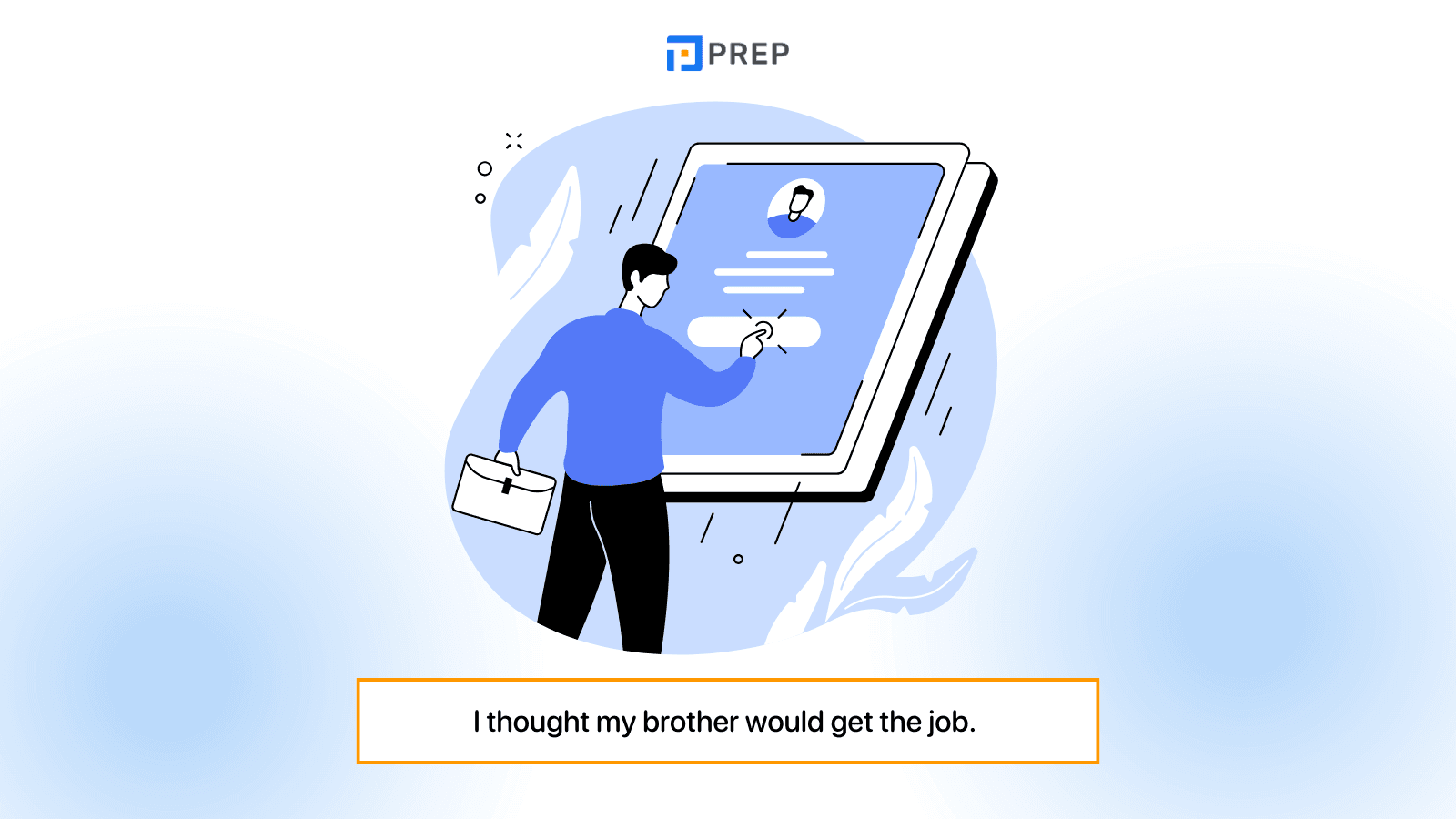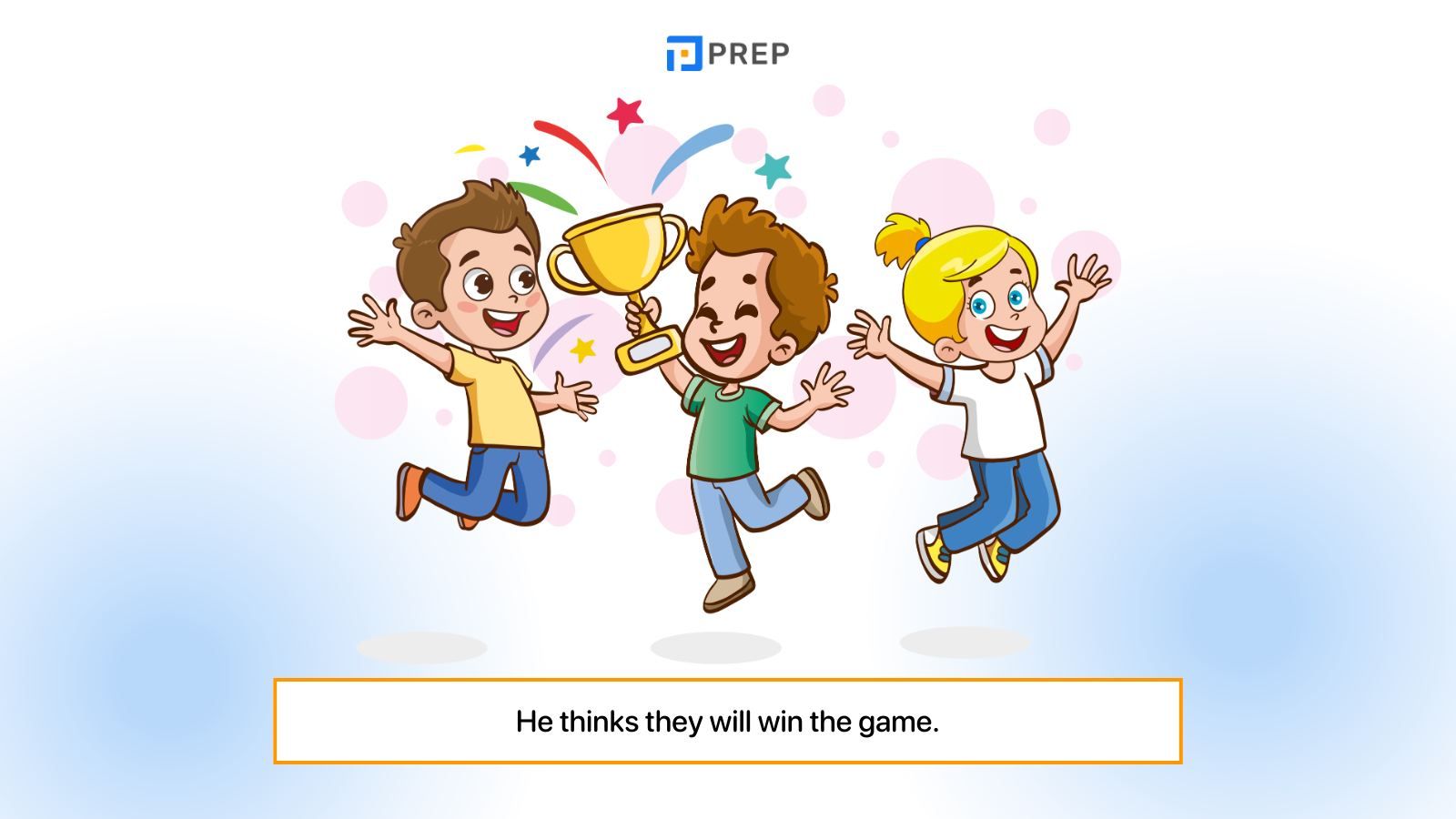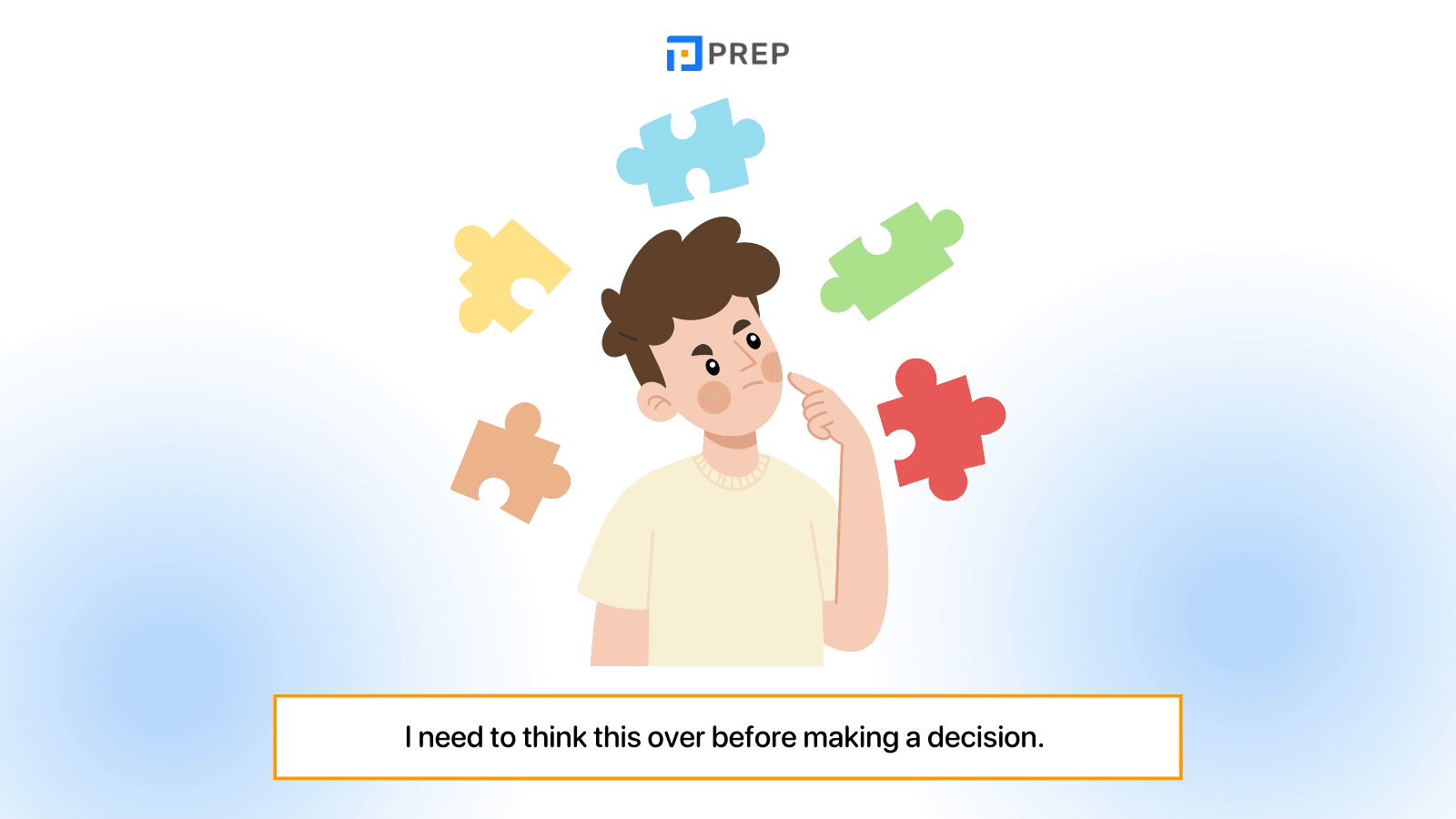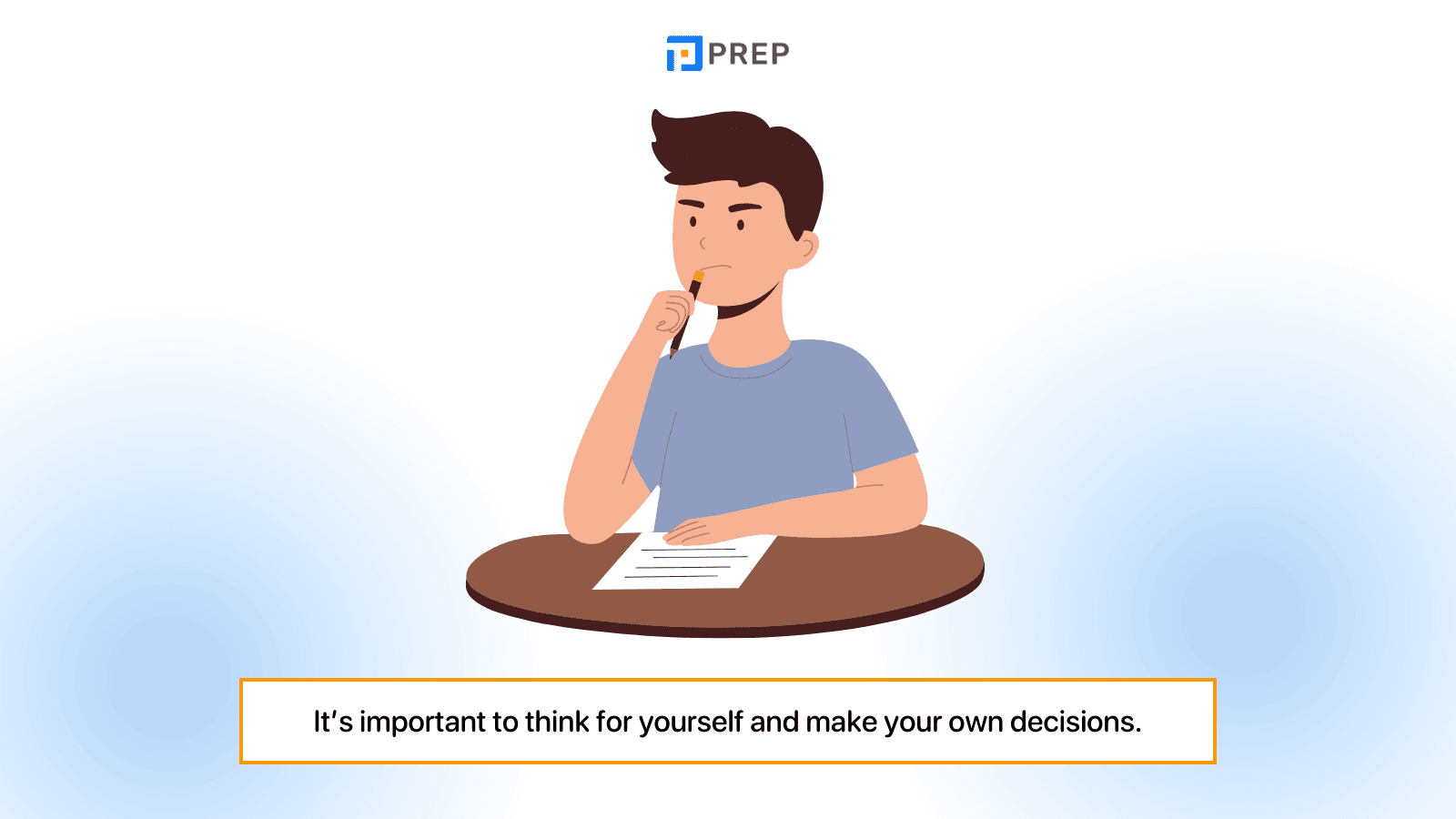What is the past tense for Think? The irregular verb Think: Think - Thought - Thought
“Think” is one of the most frequently used verbs in English. Despite its simplicity, many learners are unsure about its correct past tense forms due to its irregularity. In this guide, we’ll break down the past tense for Think - the base form, past simple, and past participle, along with its meaning, usage, related phrasal verbs, and idiomatic expressions. Let’s dive in!

I. What is Think?
Think, pronounced /θɪŋk/, generally means to consider, reflect on, or have an opinion about something. It is widely used in both spoken and written English. For example:
-
I think about you every day.
-
I'm thinking of going on a trip next month.
-
Think of a world where everyone is happy.

II. What are the V0, V2, and V3 forms of Think? The past tense of Think in English
What is the past tense for Think? V0, V2, V3 are abbreviations for the base form, simple past, and past participle. Let's explore the V0, V2, and V3 forms of Think in the table below with PREP!
|
Verb form |
Example |
|
|
V0 |
Think /θɪŋk/ |
I don't think my brother will get the job. |
|
V2 |
Thought /θɑːt/ |
I thought my brother would get the job. |
|
V3 |
Thought /θɑːt/ |
I have already thought that my brother would get the job. |
“Think” is an irregular verb, which means its past forms do not follow the usual “-ed” ending pattern. Think past tense and past participle are: past simple of Think is Thought and Think past participle is Thought. Therefore, past perfect Think is Had Thought.

III. How to conjugate Think in English grammar
Let’s explore how “Think” is used across the 12 English tenses and in special sentence patterns:
1. In the tenses
|
12 tenses in English |
I |
He/She/It |
We/You/They |
|
Present simple tense |
think |
thinks |
think |
|
|||
|
Present progressive tense |
am thinking |
is thinking |
are thinking |
|
|||
|
Present perfect tense |
have thought |
has thought |
have thought |
|
|||
|
Present perfect progressive tense |
have been thinking |
has been thinking |
have been thinking |
|
|||
|
Past simple tense |
thought |
thought |
thought |
|
|||
|
Past progressive tense |
was thinking |
was thinking |
were thinking |
|
|||
|
Past perfect tense |
had thought |
had thought |
had thought |
|
|||
|
Past perfect progressive tense |
had been thinking |
had been thinking |
had been thinking |
|
|||
|
Future simple tense |
will think |
will think |
will think |
|
|||
|
Future progressive tense |
will be thinking |
will be thinking |
will be thinking |
|
|||
|
Future perfect tense |
will have thought |
will have thought |
will have thought |
|
|||
|
Future perfect progressive tense |
will have been thinking |
will have been thinking |
will have been thinking |
|
|||

2. In special sentence structures
|
Special Structure |
I |
He/She/It |
We/You/They |
|
Conditional Sentences |
|||
|
Second conditional - Main Clause |
would think |
would think |
would think |
|
|||
|
Third conditional - Main Clause |
would have thought |
would have thought |
would have thought |
|
|||
|
Subjunctive |
|||
|
Subjunctive expressing present situation |
think |
think |
think |
|
Subjunctive expressing present situation contrary to fact |
thought |
thought |
thought |
|
Subjunctive expressing past situation contrary to fact |
Had thought |
Had thought |
Had thought |
|
Example |
|
||

IV. Phrasal verbs with Think in English
“Think” also forms part of many phrasal verbs that carry specific meanings. Some useful examples include:
|
Phrasal Verbs with Think |
Meaning |
Example |
|
think something over |
to consider and reflect on a decision or idea carefully before making a conclusion |
I need to think this over before making a decision. |
|
think up something |
to invent or create an idea or plan |
Anna managed to think up a brilliant solution to the problem. |
|
think sth of sth/sb |
to have an opinion or feeling about something or someone |
What do you think of the new manager? |
|
think back |
to recall or reflect on an event from the past |
When I think back to my childhood, I remember playing outside every day. |
|
think sth out |
to think carefully and in detail about a problem or situation to find a solution |
I need to think this plan out thoroughly before presenting it. |

V. Idioms with Think in English
Idiomatic expressions using “Think” often convey figurative meanings. Here are a few you should know:
|
Idioms with Think |
Meaning |
Example |
|
not think much of someone/something |
to have a low opinion of someone or something; to not be impressed |
I don’t think much of his excuses; they seem unconvincing. |
|
not think straight |
to be unable to think clearly and calmly due to being surprised, overwhelmed, or stressed, often accompanied by anxiety |
After the argument, I couldn’t think straight and made some poor decisions. |
|
think better of something |
to change one's mind or decision after reconsideration |
Xavia thought better of going to the party after hearing about the bad weather. |
|
think for yourself |
to think independently, without being influenced by others |
It’s important to think for yourself and make your own decisions. |
|
think long and hard |
to consider something carefully, thoroughly, and thoughtfully |
You should think long and hard before accepting that job offer. |

VI. Exercise on applying the past tense for Think with answers
Ready to test your understanding about past form of Think? Try the following short exercise:
1. Exercise: Conjugate the verb Think in parentheses
-
I (think) _________ he is a great leader.
-
Jack (think) _________ about taking a vacation next month.
-
They (think) _________ about the project and decided to proceed.
-
I (think) _________ of ways to improve my skills.
-
John (think) _________ the meeting was at 3 PM.
-
They (think) _________ about the problem when I called.
-
I (think) _________ it over before making a decision.
-
Richard (think) _________ about that issue for weeks.
-
I (think) _________ of a solution by tomorrow.
-
Linda (think) _________ about this for a long time by next week.
2. Answer key
|
|
By now, you should have a clear understanding of how to use the past tense for Think in its various forms and contexts. Although it’s a simple word, knowing how to conjugate and apply it correctly can significantly improve your fluency.
For more grammar tips and structured IELTS preparation, be sure to check out PREP’s comprehensive online learning platform, where you can strengthen all four skills—Listening, Reading, Writing, and Speaking—at your own pace.

Hi I'm Chloe, and I am currently serving as an Product Content Administrator at Prep Education. With over five years of experience in independent online IELTS study and exam preparation, I am confident in my ability to support learners in achieving their highest possible scores.
Comment
Premium content
View allPersonalized roadmap
Most read












